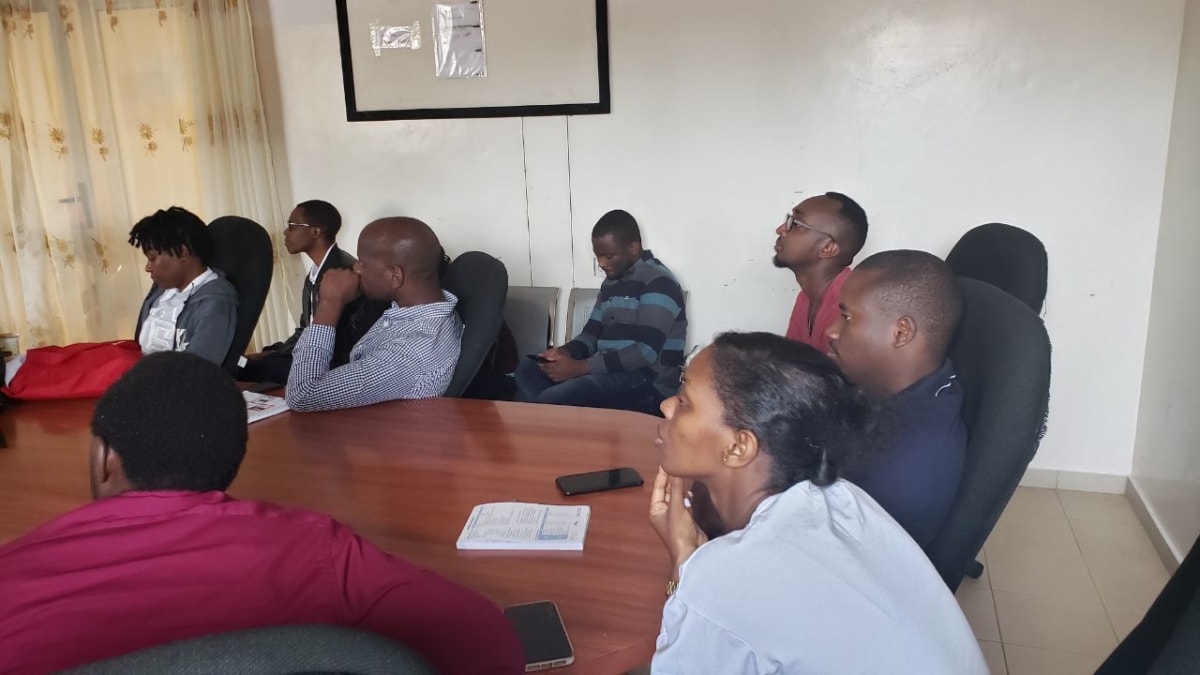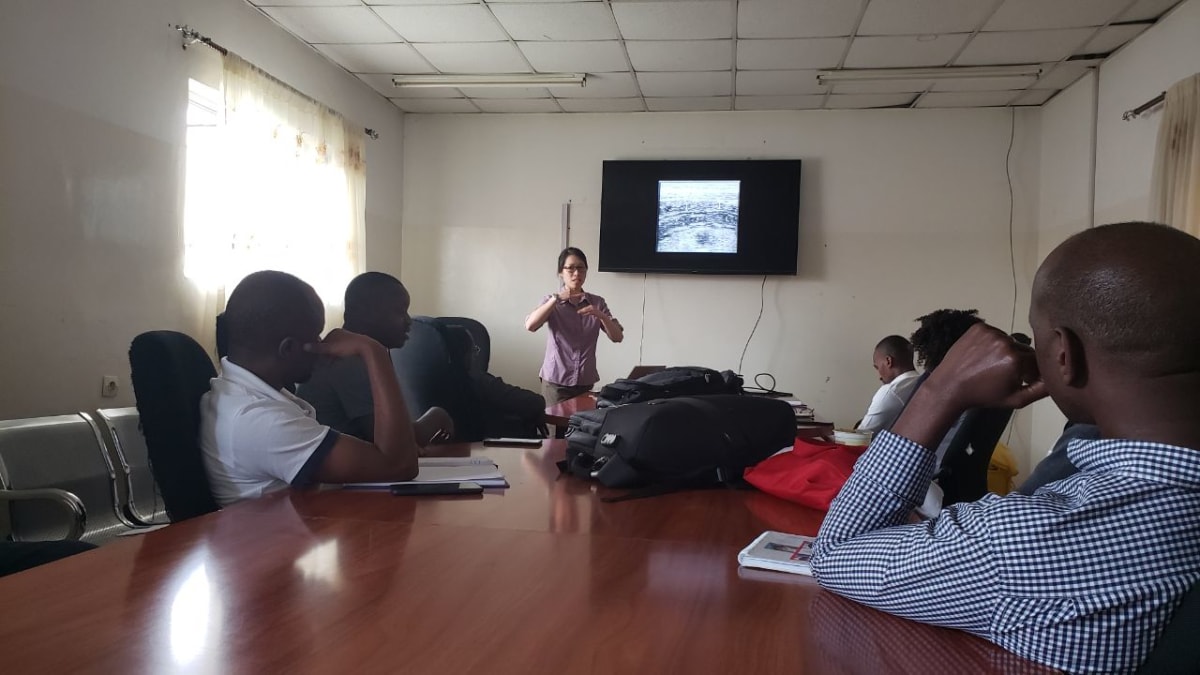After completing emergency medicine residency, I decided to pursue ultrasound fellowship. I am halfway through my ultrasound fellowship, and have been invited to teach point-of-care ultrasound to emergency residents at a hospital in Kigali, Rwanda. I will be teaching emergency medicine residents point-of-care ultrasound for 3-4 weeks, including cardiac, lung, obstetric, biliary, renal, and musculoskeletal ultrasound. The residents have some introduction to basic ultrasound but there is little faculty capacity for more focused guidance or feedback. While there, I will be able to help residents hone their skills and solidify their foundations in point-of-care ultrasound. This individualized instruction will allow more residents to be able to effectively use point-of-care ultrasound in their day-to-day clinical work, which would expedite and augment patient care. I see ultrasound as an equalizing tool in clinical care and diagnostics. In low-resource environments, CT scans and even X-rays are not always readily available; ultrasounds are relatively cheap, more portable, and can reveal clinical information quickly to inform care. The emergency department has an ultrasound machine, so I hope to be able to help those taking care of patients use it more effectively. I also hope to be able to help the team on site set up a system for quality assessment of scans performed, to be able to help both trainees and faculty strengthen their ultrasound skills.
The University Teaching Hospital of Kigali (CHUK), where I will be working, is a tertiary care referral hospital in the capital city of Rwanda. The patient population is generally poor, either presenting directly to CHUK or transferred from one of 19 different district hospitals. The emergency department is built for 24 beds but can accommodate nearly 50 beds if necessary. The department is open 24/7, staffed by 4 emergency specialists and 3 generalists, in addition to residents. There are currently 16 residents but there will be 6 more new residents by the time I arrive. Residency is a 4-year program, and residents come from all over the country. My work to help educate the residents will benefit not only the residents, but also the emergency-trained faculty (as I will be taking a load off their hands to teach the residents), the patients (since current and future patients will benefit from the skills and knowledge that the residents gain), and potentially the other faculty (I can teach the generalist physicians the basics of point-of-care ultrasound as well, which would potentially aid them in their clinical work). Therefore, in focusing on teaching the residents this valuable skill, I will be able to make a more lasting impact on the emergency physicians, residents, and the patient population at CHUK.
The emergency department gets about 20,000 visits per year, and in addition to long hours of patient care, the 4 emergency physicians also have to make time to teach the residents. Given all that the specialists are responsible for, it is inevitable that they will have to pick and choose what to teach and what the residents must learn on their own on the job. My presence will allow them to focus on patient care and other aspects of residents’ clinical education. There is immediate impact on learners because of the focused instruction that allows for improvement of their skills. The longstanding impact will be that the residents who develop stronger foundations in point-of-care ultrasound can then teach their juniors and counterparts as well: therefore, the positive effect has the potential to be multiplied many-fold. If we are able to develop a quality assessment system for the residents, they will be able to evaluate themselves and each other to continue to improve and advance in their clinical ultrasound skills. Residents will also be connected with resources available online and books on ultrasound to further advance their knowledge.
The result of this learning will also directly impact patients whom each resident sees in the future. The ability to have clinical information immediately at the bedside will help with care especially for critically ill patients. Patients have to pay a copay to get even X-rays, let alone more advanced imaging, so point-of-care ultrasound is highly valuable for an already financially strained patient population.








The academic hospital I was at had 3 full-time emergency medicine faculty, and there was always at least 1-2 working clinically 24/7. As they were always working, it was challenging for them to give individuallized bedside ultrasound teaching for the dozens of residents in the program, as well as to regularly provide POCUS lectures during resident education. I was able to support the faculty and share their load for a short period of time, to provide bedside teaching and give some lectures to residents.
The residents told me that sometimes they would perform a bedside ultrasound only to realize they did not know what they were looking at. My first response was to tell them something like that happens no matter how far along you are in training. But while I scanned with the residents in the emergency department, I could see that I served as a safety net for them when they performed ultrasounds: I could look at the images with them, help them identify pathology or lack thereof, point out ways they could improve their image aquisition, and more. Having someone supporting them real-time gave them more confidence to go and scan. Whether it be because they already had the interest prior to my arrival or because I helped them recognize its utility, I could see that the residents I worked with more closely were more frequently reaching for the ultrasound machine toward the end of my time at the hospital.